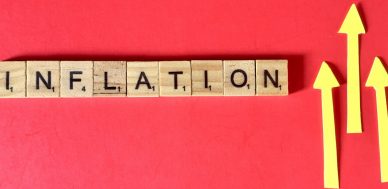Hyperinflation Could Be Right Around the Corner—and It Won’t End Well
Mark my words: hyperinflation could be coming to the U.S. economy. Investors need to be very careful; the last thing they should do is get complacent.
Digging into the details…
Understand that the COVID-19 pandemic hasn’t just been a health-care crisis; it has also been a money-destruction event.
In March 2020, the Federal Reserve stepped in to bring some calm to the market. It lowered interest rates to zero and printed a lot of money—way more money than it did in response to the financial crisis of 2008–2009 (and in a very short period). Mind you, money is still being printed and the interest rates set by the Fed remain at zero.
As this happens, the U.S. government has been spending money hand over fist. In 2020, Americans were given two stimulus checks, and it’s possible that more could follow. In doing so, the U.S. government has incurred massive budget deficits and the national debt has soared well past $27.0 trillion.
What Does This Have to do With Hyperinflation?
Basic economics: inflation is defined by increased prices of general goods and services. Hyperinflation is inflation that grows at an extremely fast pace.
How do we get inflation? It happens when there’s a lot of money in an economy and it’s moving around. Hyperinflation happens when there’s an extreme amount of money in an economy and it’s moving around.
This is critical: in the previous financial crisis, average Americans never saw a penny from the government. Back then, the Federal Reserve just created monetary inflation by increasing the money supply. This time around, the government gave money to average Americans to spend while the Fed printed immense amounts of cash.
This could turn out to be a dangerous situation.
Bond & Stock Market Already Hinting at Spiking Inflation
The bond market is hinting that higher-than-normal inflation could be just around the corner. Look at the chart below; it plots the yield on 10-year U.S. Treasuries.
Chart courtesy of StockCharts.com
In the last six months, the yield on these bonds jumped by more than 84%! This is big because the Federal Reserve is essentially trying to keep yields low.
Know this: inflation is the bond market’s biggest enemy. If yields are soaring so much, it could it mean that the bond market is starting to price in the possibility of hyperinflation in the coming quarters and years.
Beyond this, it must be questioned whether the stock market is also foretelling hyperinflation. Currently, stocks are trading at extreme valuations—well above their historical averages—at a time when companies’ earnings are dismal and economic conditions are dire at best.
If Hyperinflation Becomes a Problem, Here’s What Investors Could Do
Dear reader, the case for hyperinflation coming to the U.S. economy continues to get stronger.
Here’s what you must know: if inflation is like a silent tax on your savings, hyperinflation is like highway robbery of your savings and investments. The higher the rate of inflation, the higher the rate of return you will need in order to make sure your wealth doesn’t erode. You might be forced to take higher risks to gain higher returns.
As such, investors could look at two of the best hedges against hyperinflation: gold and silver. These precious metals have a history of providing wealth preservation at times when the value of money deteriorates. Currently, gold and silver are selling for dirt-cheap prices, given what could be ahead.
